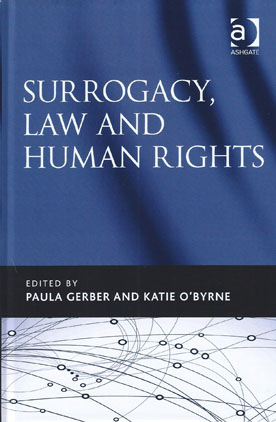
Surrogacy presents particularly complex questions for human rights law and theory. This book provides a unique and insightful examination into the underexplored issues of how domestic and international law is responding to the sharp increase in the use of surrogacy.
The work presents critical analysis of the current regulation of surrogacy via domestic law in Australia, India and the USA, and international law in the form of the UN Convention on the Rights of the Child. Including a wide range of views from academics and practitioners around the world, the contributors consider what could be done to further protect the rights of all persons involved in surrogacy arrangements.
This in-depth study of the international and domestic law governing surrogacy provides much needed scholarly knowledge of this contemporary phenomenon, along with recommendations for improvement, regulation and reform. The book will be of great importance to human rights and legal scholars, and well as practitioners in this field.